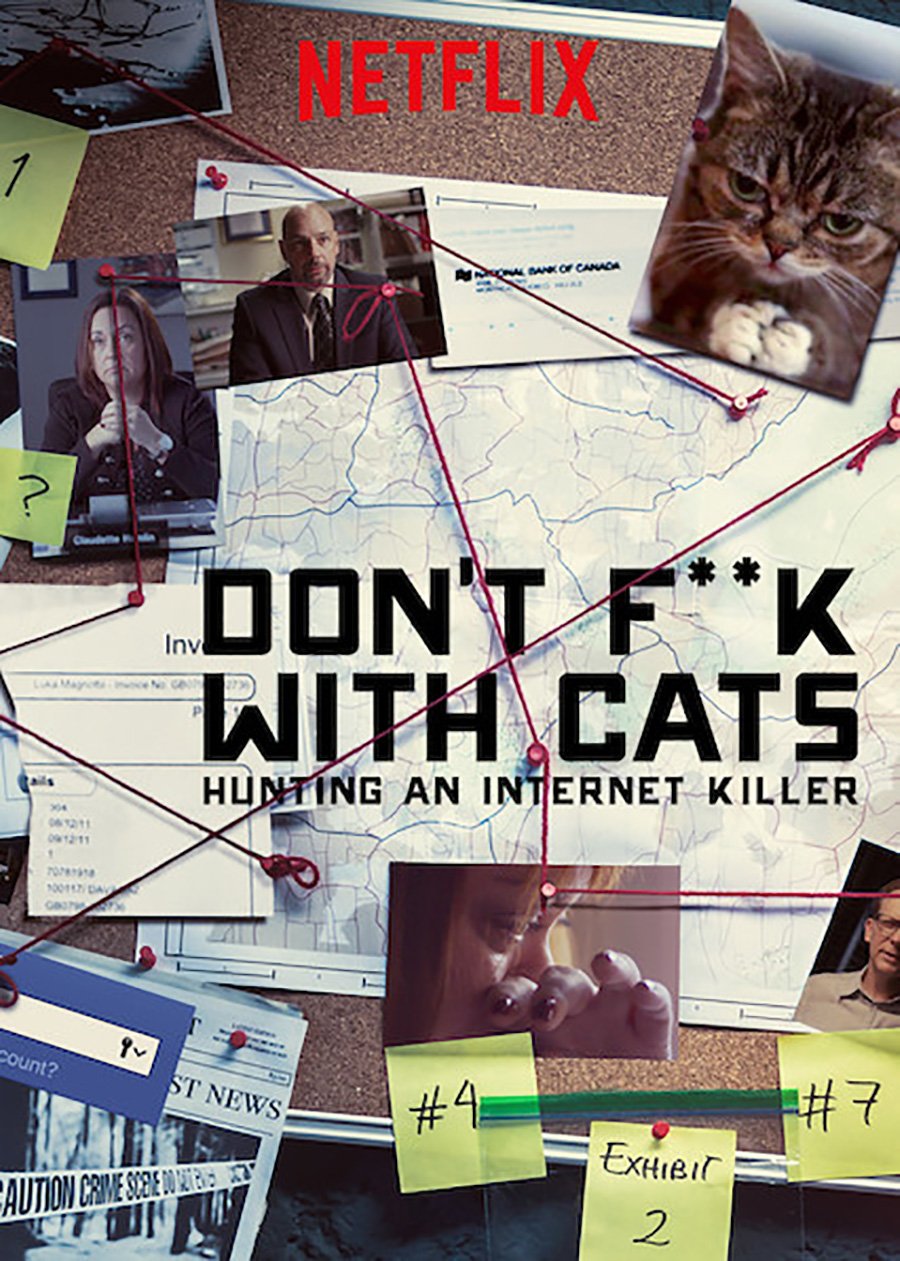Luka Magnotta: The Curiosity Killed the Cat
/Warning: This post discusses graphic violence, murder, and animal cruelty. Reader discretion is strongly advised.
When I first watched Netflix’s Don’t F**k with Cats, I was struck by just how much I didn’t know about the murder of Jun Lin. The realisation that all of this had unfolded during my childhood added an eerie familiarity. I vaguely remembered news clips about a Canadian killer who sparked an international manhunt, but it wasn’t until the documentary that I fully understood the depth of his crimes—and the foolish reasons behind them.
Luka Magnotta did not commit murder because he felt pressured to do so or because he lost his temper. He desired this, therefore he killed. He desired for everyone to see him, talk about him, and chase him. And he ultimately got what he desired. Every detail was reported by the global media, every action he took was examined by web investigators, and Netflix cemented his reputation.
However, one thing becomes evident to me when I consider Magnotta's actions: Jun Lin, his victim, is not worthy of being merely a footnote in the tale of a narcissist driven by fame. I aim to dismantle Magnotta's self-proclaimed legacy and shift the focus back to Jun Lin, a young man whose life was taken but whose tale shouldn't be overshadowed by the attention-seeking nature of his killer.
Honouring Jun Lin
image courtesy of jun lin via shuttershock
Jun Lin was full of hope when he came to Canada from Wuhan, China. He was 33 years old and was going to Concordia University in Montreal to get a degree in computer engineering.
He was often described as friendly, ambitious. Not only did he work hard for himself, but also to help his family back home.
But the terrible things the person who killed Jun Lin do often overshadow his story. That does not honour the spirit of the person who did not deserve to be called "the victim" in a sensationalized story.
We should remember the person Jun Lin was, not just how his life ended, when we talk about him.
A Killer's Desire for Fame
Luka Magnotta wasn’t a killer fuelled by passion or necessity. His actions were deliberate, calculated, and theatrical. Before the murder, Magnotta uploaded disturbing videos of animal cruelty, horrific foreshadowing of what was to come. These videos were designed to provoke, to draw attention to himself, and to set the stage for what he clearly wanted to be his infamous debut.
The murder of Jun Lin was a performance. Magnotta filmed the act and distributed the footage online, ensuring it would shock and disgust viewers worldwide. His subsequent actions, such as mailing body parts to political offices and schools, only added to the grotesque spectacle. Then he fled the country, sparking an international manhunt that ensured his name would dominate headlines.
The Internet’s Role
image courtesy of netflix via tvguide.com
The media devoured his story, true crime enthusiasts dissected his every move, and documentaries like Don’t F**k with Cats solidified his infamy.
Yet, the documentary itself is painfully aware of the unintended consequences of this attention. Those involved in tracking Magnotta down feared that their pursuit—the Facebook group, the relentless hunt—may have fed into his sick desires, propelling him to escalate to murder.
The series ends with a jarring message, urging viewers to consider how our collective fascination with true crime can inadvertently elevate individuals like Magnotta.
And here you are, reading this—intrigued by the title, drawn in by the very thing the documentary warned us about.
Reclaiming the Narrative
When we think about the murder of Jun Lin, we must not let Magnotta’s theatrics overshadow the life that was lost. Jun Lin was a man with a dream, a family, and a future snatched away. Lin was more than simply a victim.
Stories about true crimes, whether told in movies or on blogs like this one, can change the course of events. We might choose to remember the victims' lives lost rather than give killers the attention they crave. We can speak Jun Lin's name and honour his memory to ensure his legacy extends beyond his death.
The True Legacy
The story of Jun Lin and Luka Magnotta is a stark reminder of the fine line true crime walks between informing and sensationalising. While Magnotta’s actions are horrific and deserving of scrutiny, they should not eclipse the humanity of his victim.
Jun Lin’s life was worth more than being a mere mention in the story of a narcissist. Let’s ensure that in our conversations, our stories, and our memories, we focus not on the killers but on the lives they took and the legacies those lives leave behind.
Kyra Nehme is a 22-year-old, second-generation Lebanese immigrant born and raised in Ontario, Canada. Kyra is a Professional Writing student at Algonquin College who is a passionate and outgoing writer determined to share her works with the world with the goal of cracking a smile or touching a heart. She loves expressing herself through fashion, connecting with people, and talking about the things she loves. Those things just so happen to be everything that is dark, twisted, and wrong with the world!





